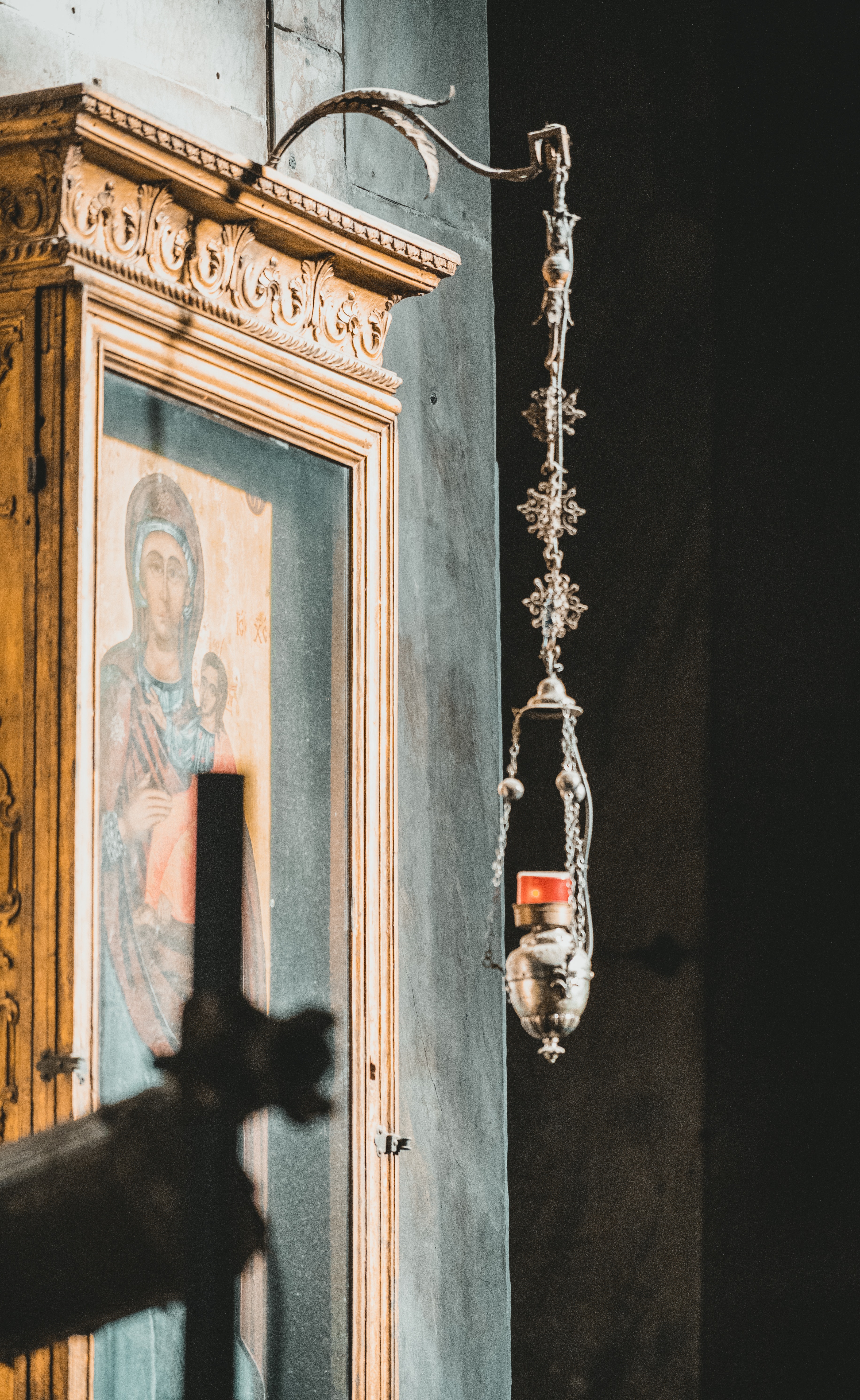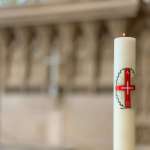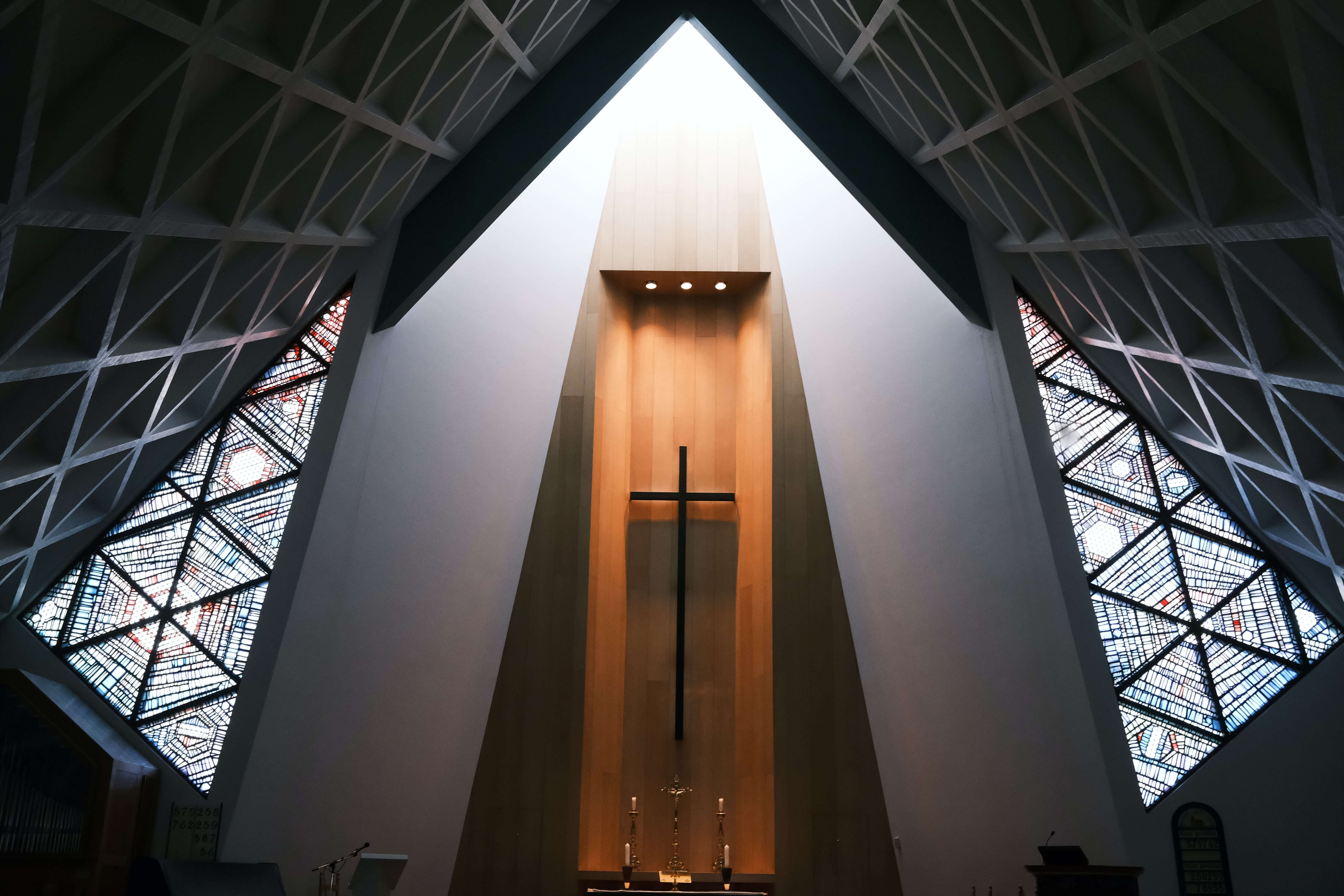By Kimberly Bruce
Sunday, 22 June is a significant day in the Church calendar: the feast of two great and inspiring English Catholic martyrs: St. John Fisher, bishop, and St. Thomas More.
Saint John Fisher (1469-1535) was a renowned scholar, priest, and cardinal in the Catholic Church. Saint Thomas More (1478-1535) was a popular statesman, humanist, and author, as well as a loving husband and father.
Both were imprisoned and killed in the same year by King Henry VIII for fearlessly upholding the teachings of the Catholic faith, refusing to support the king’s divorce from Queen Catherine of Aragon, his remarriage to Anne Boleyn, and his proclamation of himself as supreme head of the Church in England, defying the pope and breaking with Rome.
Let’s examine each saint’s life in turn.
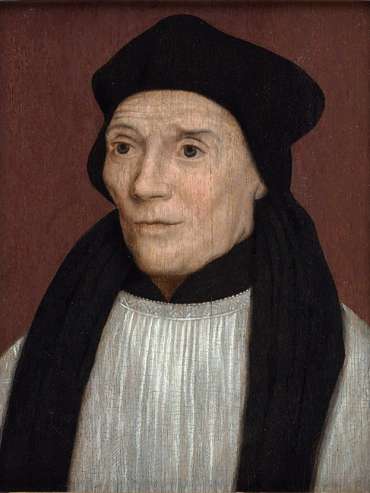
Scholar and priest
Born in 1469 in Beverley, Yorkshire, England, John Fisher excelled in academics, entering Cambridge University in 1484 (He would obtain his Doctor of Divinity degree in 1501). In 1491, at the age of 22, he was ordained to the priesthood, but only after receiving dispensation from Rome as he was younger than the usual canonical age for ordination.
Clearly gifted, Fr. Fisher was elected vice-chancellor of Cambridge and appointed the confessor to Lady Margaret Beaufort, mother of King Henry VII. With Fr. Fisher’s help, Lady Margaret founded two new colleges at Cambridge, St. John’s College and Christ’s College.
Appointed bishop of Rochester in 1504, Bishop Fisher also became Chancellor of Cambridge as well as president of Queen’s College. He presided over the funeral of King Henry VII in 1509.
Reformation
When Protestant doctrine began to emerge in the 1520’s, Bishop Fisher became one of the Catholic Church’s most staunch defenders. He wrote Assertionis Lutheranae Confutation in 1523 to refute the teachings of Martin Luther. He defended the Catholic doctrine of the Eucharist in his De Veritate Corporis et Sanguine Christi in Eucharistia in 1527. These works influenced the Council of Trent.
The most difficult time came for Bishop Fisher, however, when King Henry VIII wanted to divorce his first wife, Catherine of Aragon in 1527. Bishop Fisher in no uncertain terms upheld the Sacrament of Marriage, siding with the Church, who had denied any annulment and upheld the marriage’s validity. Bishop Fisher came to Catherine’s defense, too, by writing several books on her behalf.
Defending Queen Catherine in the legates’ court as well, Bishop Fisher stunned all when he announced that he would die rather than betray the truth of the indissolubility of the marriage bond. He refused to support the Act of Succession, by which one was required to recognize Anne Boleyn as King Henry’s rightful wife and their children as rightful successors to the throne. Refusal was a treasonous act, and Bishop Fisher was sent to the Tower of London on 26 April, 1534.
Imprisonment
In his confinement, Bishop Fisher endured many sufferings and hardships. He was living an experience St. Faustina identified with:
O my Jesus, You know that I have gotten myself into a lot of trouble for speaking out the truth. O truth, so often oppressed, you nearly always wear a crown of thorns! O Eternal Truth, support me that I may have the courage to speak the truth even if it would come about that I would pay for it with my life. O Jesus, how hard it is to believe in this, when one sees one thing taught and something else lived (Diary of Saint Maria Faustina Kowalska, 1482).
In 1535, the new Pope, Paul III, elevated Bishop Fisher to the College of Cardinals. Furious, King Henry threatened that if Fisher’s cardinal hat was brought to England, he would send Fisher’s head back to Rome!
On 14 June, Cardinal Fisher was again charged with treason for denying that King Henry was now supreme head of the Church in England. He was treated as a commoner, tried by jury, and sentenced to death. He was beheaded on 22 June, 1535.
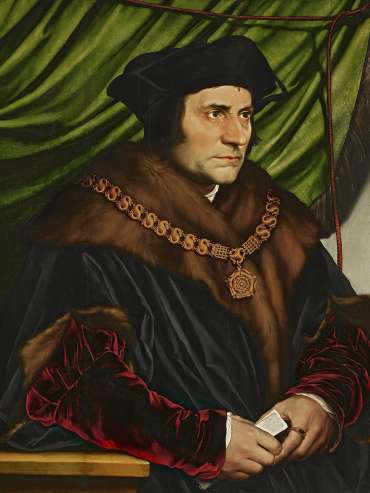
Parallel paths
Saint John Fisher and St. Thomas More were contemporaries, and shared a love of scholarship and the Catholic faith. Both were highly regarded by the king, until each made the ultimate choice: God or man.
The only surviving son of his parents, Thomas was born on 7 February, 1478. Because of his bright intellect and joy-filled character, he was sent to continue his schooling under the Archbishop of Canterbury and Lord Chancellor, Cardinal Morton. So impressed was the archbishop that he sent Thomas on to Oxford University in 1492.
After two years at Oxford, More’s father wanted him to enter law school, so Thomas moved to London to begin law studies. In 1497, he met Desiderius Erasmus, the great Dutch scholar and humanist, and the two struck up a life-long friendship.
Many professional doors opened for Thomas after law school. Feeling drawn to the priesthood, he took up residence in a Carthusian monastery, living alongside its monks to discern his vocation. Though he chose to remain a layman, he never stopped some of the ascetic practices he began in the monastery: wearing a hair shirt underneath his regular shirt (as a sacrifice), fasting, rising early in the morning, and a prayer-filled life dedicated to God.
Marriage and fame
Thomas then chose to marry Jane Colt, the eldest daughter of a farmer. They had a short but happy marriage blessed four children. Jane died in childbirth in 1511, leaving Thomas a widower with four small children. He soon married, again, this time choosing a widow seven years his senior, Alice Middleton, who was a devoted wife and mother to More’s children.
More continued climbing the ranks in society. He was made Under-Sheriff of London in 1510; wrote his most famous work, Utopia, in 1516; became part of King Henry’s inner circle; was knighted in 1521; became sub-treasurer to the King; elected Speaker of the House of Commons in 1523; High Steward of Cambridge University in 1525; and Chancellor of the Duchy of Lancaster.
Rich, living in a mansion, and esteemed by the king, More had no presumptions of safe sailing in his life. He confided to son-in-law, Roper, “If my head should win him [King Henry] a castle in France, it should not fail to go.”
“The King’s Great Matter”
Then More faced, as Bishop Fisher did, what came to be known as “The King’s Great Matter.” Like Bishop Fisher, More refused to accept the Act of Succession. More spent 15 months in the Tower of London. During this time, he wrote letters and had visits from his wife and family members, particularly his daughter, Margaret.
More was indicted for high treason when he opposed the next Act of Supremacy by which King Henry demanded he be accepted as supreme head of the Church in England, instead of the pope. More said this Act was contrary “to the laws of God and his holy Church” whereby “no temporal prince” could take what only belonged to St. Peter and the subsequent popes after him.
His family tried to convince More to take the oath to save his life, but he could not in good conscience.
Saint Faustina, in her Diary, recorded truths pertaining to Our Lord in the Blessed Sacrament which St. Thomas More could well identify with:
O Blessed Host, our only hope in all the sufferings and adversities of life.
O Blessed Host, our only hope in the midst of darkness and of storms within and without.
O Blessed Host, our only hope in life and at the hour of our death.
O Blessed Host, our only hope in the midst of adversities and floods of despair.
O Blessed Host, our only hope in the midst of falsehood and treason. (356)
On 4 May, 1535, Margaret came to visit her father, and the two saw three Carthusian priors and a Bridgittine nun from the window of More’s prison cell refuse to acknowledge Henry as head of the Church and be executed. Said More to his daughter, “Lo, dost thou not see, Meg, that these blessed fathers be now as cheerfully going to their deaths as bridegrooms to their marriage?”
Three months later, on 7 July, two weeks after Cardinal Fisher, Thomas More was beheaded.
In 1886, Pope Leo XIII beatified Sir Thomas More and Cardinal John Fisher along with 53 other English martyrs, and the two blessed by Pope Pius XI in 1935.
Intercession
We can ask ourselves: Would we be willing to stand up for our faith under such duress and threats of torture and execution? We need to pray to Our Lord to grant us strength to stand for truth and holiness in whatever life situations we find ourselves in and to ask the saints and martyrs to aid us by their intercessory prayers.
May we remember the countenance, charity, faith, strength of character, and joyful spirit of Saints John Fisher and Thomas More and seek to emulate those holy traits in our own lives. And never forget to count upon their worthy intercession to aid us in our prayers.
Holy martyrs, pray for us!



